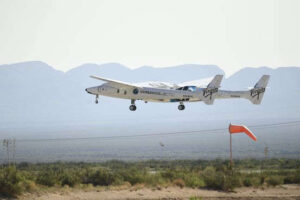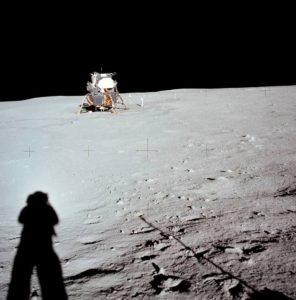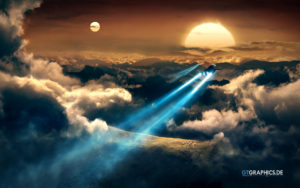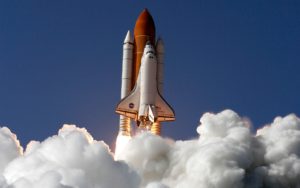By John Kanelis / johnkanelis_92@hotmail.com
This is what passes for a “space race” these days?
Two insanely rich business moguls — Sir Richard Branson and Jeff Bezos — vying to see who between them can be the first to fly into the lower reaches of outer space?
Branson got there first. He did so today flying aboard his Virgin Galactic ship that he launched from an airborne vehicle that had taken off from a site near Truth or Consequences, N.M.
Branson and Bezos haven’t been calling it a “space race,” even though they both made a good bit out of the fact that Branson was going to get there first.
I damn near LOLed when I saw Branson chortling and chuckling about how the minutes-long suborbital flight was the greatest thrill of his life. It made me want to mutter: big fu***** deal!
I am still trying to fathom what tangible, meaningful use is going to come from the flight or the one that Bezos is going to take in just a few days. I hear things about development of a vehicle that could make space travel more, um, practical and affordable for the run-of-the-mill shmuck who wants to fly into space. As for the cost of flying aboard the Virgin Galactic vehicle or the Bezos rocket, if you have a spare quarter-million bucks laying around, then you can be among the first.
Don’t get me wrong. I haven’t always been this, um, cynical about shmucks in space. I applied to NASA to be the first “journalist in space.” That was in the 1980s. Then the Challenger exploded in January 1986 and all that went away as the nation grieved the loss of those seven astronauts — including the teacher picked to fly with them.
But this so-called “space race” bears no resemblance to the real space race that occurred after the Soviet Union launched Sputnik in 1957 and then sent Yuri Gagarin around the world in the first manned mission in 1961. The finish line for that race was the moon.
Spoiler alert: We got there first … in July 1969!
I suppose the next real space race will commence once we get serious about sending human beings to Mars. I want to be around to watch that one unfold.




